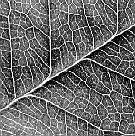

P L A N T S
Then God said, "Behold, I have given you every
plant yielding seed that is on the surface of all the earth,
and every tree which has fruit yielding seed; it shall be food for you;... (Genesis 1:29)
Plants have been given to man not merely as food and medicine for our bodies, but also as pictures and examples of spiritual truths recorded in Scripture. Man's dependance upon cultivation and the consistencies in the agricultural and natural world have provided reference points which can be used to learn of the constants of the spiritual, or presently "unseen" world. The symbols or types using plants presented to the people who were on the earth during the time of the unfolding of the Lord Jesus' coming and purpose, were well recognised. These analogies had to do with a large part of the lives of those who heard the Lord's parables firsthand, for one was naturally familiar with a primary means by which he was fed on a daily basis. Even if one was not a tiller of the soil at that time, he was familiar with the times and festivals of planting and harvest, and the basic cyclical systems associated with husbandry.
Plants provide an immediate picture of the rhythms of life; all have seen seeds germinate, sprout to a greater
height, and eventually wither. At some point, man must realise that he, too, is like the plant :
All flesh is grass, and all its loveliness is like the flower of the field. The grass withers, the flower fades,
when the breath of the LORD blows upon it; surely the people are grass.
The grass withers, the flower fades, but the word of our God abides forever. (Isaiah 40:6-8)
When this correlation occurs, man is brought to the ultimate fact of his physical existence, that it is only temporary.
Like the plant life which surrounds us, the body which we inhabit is vulnerable to the processes of decay and the
effects of time. Though one might work to develop the body by increasing physical exercise, when eternity is taken into account, it will be realised that such energy is relatively "only of little profit." (1 Timothy 4:8) As in the
comparison made by Isaiah, other Scriptures use the relatively short life span of grass, flowers, or other
plants, to emphasise the limitation of our physical lives when a comparison is made to the eternity ahead:
As for man, his days are like grass; as a flower of the field, so he flourishes.
When the wind has passed over it, it is no more; and its place acknowledges it no longer.
But the lovingkindness of the LORD is from everlasting to everlasting on those who fear Him,...
(Psalm 103:15-17)
In the gospel of Matthew, there is a story told by the Lord Jesus which uses an example of a man planting
seeds. This parable divides all men into four categories; all those reading it must answer the question of which of
the four types of ground corresponds to them :
And He spoke many things to them in parables, saying "Behold, the sower went out to sow; and as he sowed, some seeds fell beside the road, and the birds came and ate them up. And others fell upon the rocky places, where they did not have much soil; and immediately they sprang up, because they had no depth of soil. But when the sun had risen, they were scorched; and because they had no root, they withered away. And others fell among the thorns, and the thorns came up and choked them out. And others fell on the good soil, and yielded a crop, some a hundredfold, some sixty, and some thirty. He who has ears, let him hear." (Matthew 13:3-9)
To those who heard His parable, who had not set their hearts against Him, the Lord explained this story :
"Hear then the parable of the sower. When anyone hears the word of the kingdom, and does not understand it, the evil one comes and snatches away what has been sown in his heart. This is the one on whom seed was sown beside the road. And the one on whom seed was sown on the rocky places, this is the man who hears the word, and immediately receives it with joy; yet he has no firm root in himself, but is only temporary, and when affliction or persecution arises because of the word, immediately he falls away. And the one on whom seed was sown among the thorns, this is the man who hears the word, and the worry of the world, and the deceitfulness of riches choke the word, and it becomes unfruitful. And the one on whom seed was sown on the good soil, this is the man who hears the word and understands it; who indeed bears fruit, and brings forth,
some a hundredfold, some sixty, and some thirty." (Matthew 13:18-23)
All people fall into one of the categories of ground, and a similar division of men takes place in the parable of the wheat and the tares, following the story of the sower, in the gospel of Matthew. Again, agricultural analogies are used to explain the desemination of the truth and the work of redemption accomplished by the Lord Jesus Christ. The following is a list of references in the gospel of Matthew, which utilise plants in some form where the reader can derive a spiritual truth :
Matthew 3:7,8,10-12, 6:28-30, 7:3-5, 16-20, 9:17, 37,38, 11:28, 12:33 13:3-9, 18-23, 24-30, (37-43), 31,32, 15:13, 19:20, 20:1-16, 21:19-22, 21:33-44, 23:23, 24:32,33, 25:24- 26.
If one reads through these verses, mindful that each example is a physical picture of a more substantial spiritual truth, then he will begin to see how everything, not merely plants, might be used as a bridge to connect our limited carnal frames with the reality of a presently unseen eternity. As those created by God to dwell on this earth, we were not placed in a static, inanimate environment which is void of any evidence of its Creator. To the contrary, we are told by Scripture that one of the ways in which God is understood is through "what has been made."
"...because that which is known about God is evident within them;
for God made it evident to them.
For since the creation of the world His invisible attributes, His eternal power and divine nature,
have been clearly seen, being understood through what has been made,
so that they are without excuse." (Romans 1:19,20)
As this brief study is concluded, it noted that these and other numerous analogies fit together. If one thinks of how a plant develops, he will encounter other pictures along the way which show the ultimate spiritual truth of redemption. A plant needs to be established in some type of supportive medium, most often, earth. It requires moisture to germinate from a seed, and continued watering to grow. Another major requirement for plants, as well as man, is light. Without the energy of our sun, plant life lacks the catalyst which initiates photosynthesis in its leaves, and will not develop. Similarly, as men, we are confounded without illumination, and are without a considerable amount of sensory knowledge without the abilities afforded by our vision. By examining the intricacies of the simple elements around us, we can extract the truths as the Spirit will reveal them to us. Using the Word of God, the Scriptures, we can allow the Spirit to convict us of truths and, ultimately, experience God's plan for us. It is an eternity either with our Creator, or separate from Him, that awaits the soul of every being. From the microscope to the telescope, has He not made Himself known to us?
"The Lord has made everything for its own purpose..." (Proverbs 16:4)
The Scripture text of the New American Standard Bible is used by permission of
The Lockman Foundation, a corporation not for profit, LaHabra, California,
© 1960, 1962, 1963, 1968, 1971, 1972, 1973, 1975, 1977, 1988. All rights reserved.


